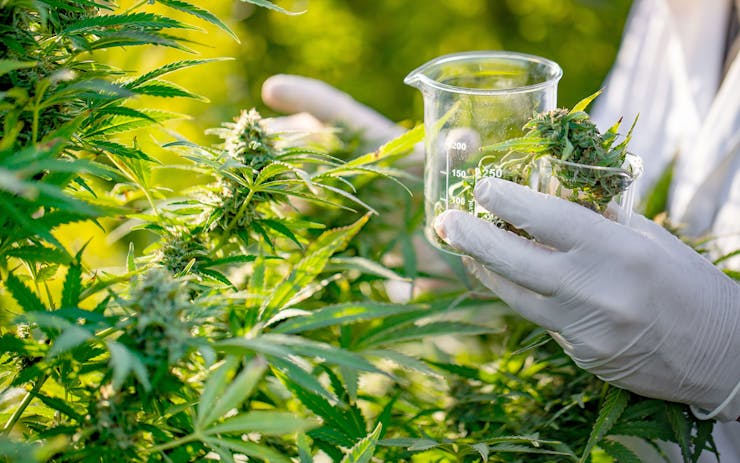BATON ROUGE, La. (AP) — Louisiana’s agriculture department and a state-sanctioned medical marijuana grower have broken through one of the key regulatory logjams keeping therapeutic cannabis off pharmaceutical shelves and out of patients’ hands.
Agriculture Commissioner Mike Strain announced Friday that regulatory paperwork and background checks have been completed. Finishing that step will allow Louisiana State University’s medical marijuana grower to move fully into a larger growing facility and start ramping up production.
The university and its growing partner GB Sciences said the main production site, completed in October, has five times the marijuana growing capacity of the facility they had been using.
“This is a great day for patients,” John Davis, GB Sciences Louisiana president, said in a statement released by the LSU AgCenter. “Full-scale operations means a consistent and continuous supply of medical cannabis. We are thrilled to move into our main facilities.”
More Hurdles Ahead
Still, product testing and other regulatory hurdles remain to be completed—and growing must expand—before medicinal-grade pot can reach patients eligible for treatment of chronic conditions.
Patient advocates are frustrated. 'We're not first to market. We're not cutting edge. This is not that complicated.'
Friday’s announcement came after the relationship between the agriculture department and the LSU AgCenter hit its lowest point this month.
Strain accused the university and GB Sciences of illegally moving their cannabis crop into the primary growing facility without meeting regulatory standards. The AgCenter said Strain’s office had given it permission to move the plants from a temporary pod to two rooms of the main facility. AgCenter leader William Richardson accused Strain of creating unnecessary regulatory hurdles that were preventing thousands of patients from receiving the medical relief to which they are entitled under the law.
Strain threatened to bring the dispute to an administrative court hearing.
Completion of the background checks seemed likely to end plans for a court hearing — and possibly keep GB Sciences on track to have medical marijuana available to patients by summer. But even that timeline is late, after previous availability projections have come and gone.
Four Years in the Works
Louisiana is nearing the four-year mark since creating the framework for dispensing therapeutic cannabis.
State regulators took years to set the rules, license the doctors and choose the pharmacies. But friction in particular seems to have emerged between GB Sciences and the agriculture department over the interpretation of its rules regulating marijuana production, slowing down paperwork and final production plans.
Shop highly rated dispensaries near you
Showing you dispensaries nearGov. John Bel Edwards said earlier this month that he’s encouraged LSU and the agriculture department to work together, describing it as “sad to allow people to continue to suffer needlessly if their doctors believe that medical marijuana will help them.”
Patients Are Fed Up
Frustration also is evident from patients and their supporters.
Senate Health and Welfare Chairman Fred Mills, the St. Martin Parish pharmacist who sponsored the medical marijuana law, said lawmakers “continue to get calls from patients that have been waiting just way too long for this medication option.”
“We’re not the first to market. We’re one of over 30 states,” Mills said. “We’re not cutting edge. This is not that complicated.”
Only the agricultural centers at LSU and Southern University are allowed to grow therapeutic cannabis in Louisiana. Southern’s grower, Ilera Holistic Healthcare, hasn’t set up its production facility or started growing the plants.
Under a law passed in 2015 and tweaked since then, Louisiana is allowing medical marijuana to treat a long list of diseases and disorders, such as cancer, seizure disorders, epilepsy, glaucoma, post-traumatic stress disorder and Parkinson’s disease. Marijuana can be available in medicinal oils, pills, liquids and topical applications, but cannot be sold in a form to be smoked.





